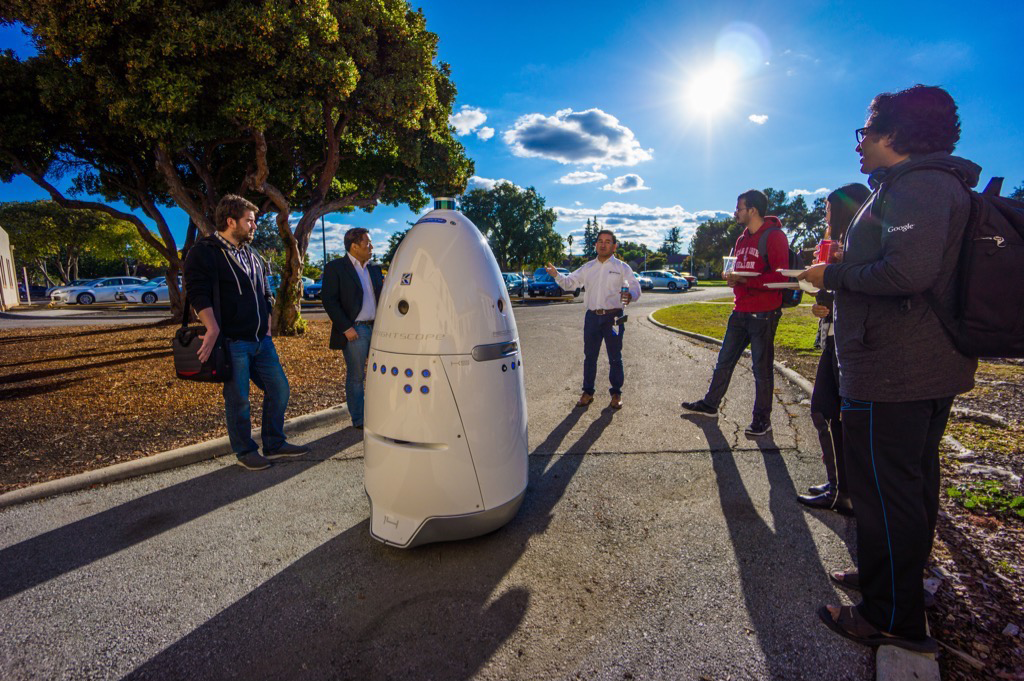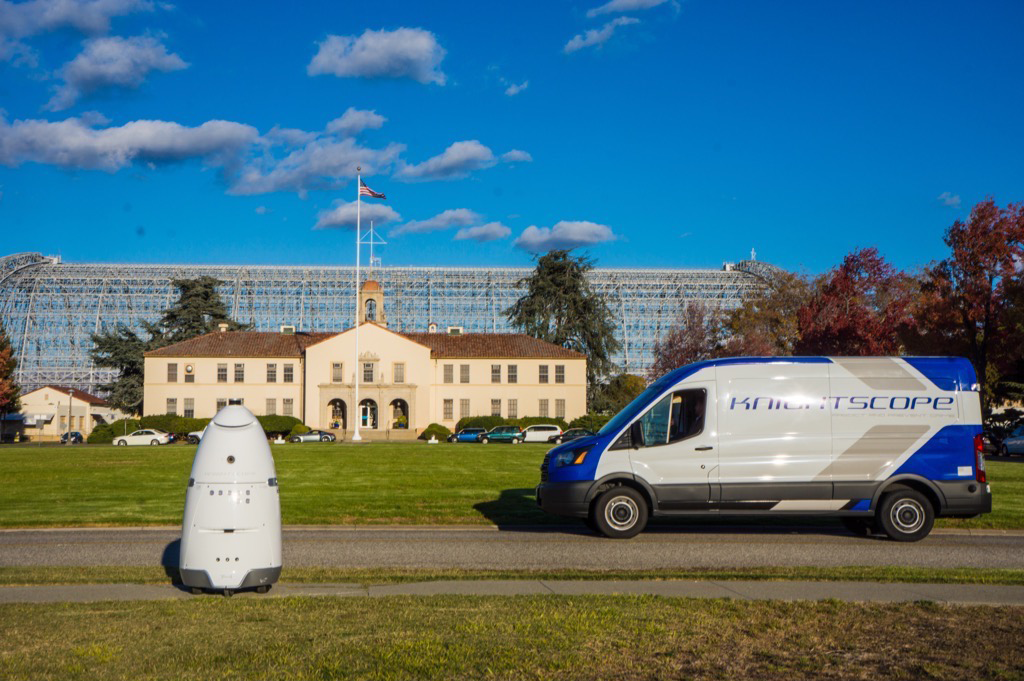Knightscope: the future of security
Emily Durham
Mar 3, 2016

Source: Knightscope
William Santana Li shows of the Knightscope K5 to CMU Silicon Valley students
William Santana Li is the mastermind behind the tech. An alumnus of Carnegie Mellon’s Department of Electrical & Computer Engineering, Li is now the Chairman and CEO of Knightscope, Inc., an advanced physical security technology company located in Silicon Valley. Li is impassioned when he talks crime; its impact on all of us is tremendous. Not only does society live in constant fear of the worst, but its economic toll on the United States is staggering.
“If you add up all the murders, all the jails, all the lawyers, and everything else,” says Li, “crime is a hidden tax all of us are paying every single year.”
Time for some statistics:
- A violent crime occurs every 26.2 seconds. Every 3.5 seconds, a property crime occurs.
- The private sector security industry has an employee turnover rate of 100-400% per year. “That means,” says Li, “you get a new team every three months or every twelve months because you can’t keep the people in the job.”
- Crime costs the United States $1 trillion per year. A trillion. Per year.

Source: Knightscope
The K5 roams the CMU Silicon Valley campus and NASA AMES Research Center
What if you could set up a whole plethora of technologies and be able to integrate them into a solution to cut crime by 50%?
William Santana Li, CEO, Knightscope
“What if you could set up a whole plethora of technologies and be able to integrate them into a solution to cut crime by 50%?” asks Li. “How valuable would that be to society?”
Very valuable, as it happens. Not only do the Knightscope robots promise to quell crime by deterring criminals from negative actions, but they also make jobs safer for human security personnel by taking on the monotonous, computationally heavy, and dangerous aspects of the job, leaving the analysis and decision-making to the human professionals.
“So what if you could actually deliver this level of safety?” asks Li. “What are the effects on housing prices? What are the effects on insurance rates or the stability of financial markets, the quality of life, the business viability of a small business down the street or the safety of your family? It would be a huge game-changer for society.
“This is a worthy challenge to take on.”